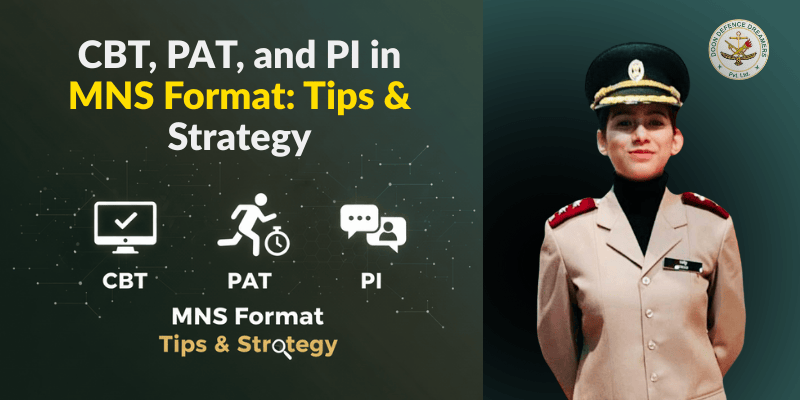Preparing smart beats preparing hard—especially for a time-boxed exam like the NDA. This guide gathers the top 10 NDA important topics for each subject, explains them in crisp 3–4 lines, and shows you how to turn those ideas into marks. If you’ve ever wondered which chapters deliver the best score-per-minute returns, these important topics are your blueprint. Treat them as the backbone of your 30-day sprint and the checklist you revisit before every mock. Throughout this article, you’ll repeatedly see the phrase NDA important topics—that’s deliberate, so your revision map stays front and center.
Mathematics — Top 10 NDA Important Topics
Before the list, remember this: exam maths rewards pattern recognition and disciplined algebra. Lock formulas, rehearse standard forms, and annotate mistakes after every mock. Start with these top 10 NDA important topics for Maths and build speed the right way.
Algebraic Identities and Factorisation
Expect expansions and reverse-engineering into factors. Memorise a2−b2a^2-b^2a2−b2, a3±b3a^3\pm b^3a3±b3, and special products. Train your eye to spot hidden structures so you can simplify early and avoid brute force.Quadratic Equations and Inequalities
Master the discriminant, nature of roots, and Vieta’s relations. Practise completing the square and translating word data into inequalities. Parameter questions become manageable once the template clicks.
These patterns belong squarely in the NDA important topics for quick scoring.Sequence and Series (AP/GP/HP)
Know nth-term and sum formulas cold. Expect mixed progressions that require algebraic manipulation. Accuracy here comes from clean substitution and unit-wise bookkeeping.Binomial Theorem plus Permutation–Combination
Focus on general term, middle term, and coefficient extraction. For P&C, internalise templates: arrangements with restrictions, circular permutations, and distribution of identical objects.
As practice evolves, this duo remains among the NDA important topics for combinatorics speed.Probability
Work with complement methods and conditional probability carefully. Draw tree diagrams to avoid double counting. Memorise standard independence results for fast elimination.Trigonometry (Identities, Heights and Distances)
Reduce expressions using core identities and R-formula. In application problems, sketch first and decide the ratio before computing.
Because of its frequency, Trigonometry is fixed in the top 10 NDA important topics you should revisit weekly.Coordinate Geometry (Lines, Circles, Conics basics)
Get fluent with slope forms, distance/section formulas, and locus reasoning. Tangent/normal conditions and circle recognition (centre–radius) show up often. Keep diagrams neat.Matrices and Determinants
Use determinant properties to simplify before expansion. Inverse via adjoint and Cramer’s Rule help crack system-of-equations fast.
For many aspirants, this set secures marks among the top 10 NDA important topics with modest effort.Limits, Continuity, and Differentiation
Memorise standard limits; apply L’Hôpital only when valid. For derivatives, practise product/quotient/chain and test monotonicity using first derivative. Tangents and normals are regulars.Integration and Basics of Differential Equations
Prioritise standard integrals, substitution, and parts. For DE, be comfortable with variable separable forms and integrating constants.
Calculus rounds off the top 10 NDA important topics by converting conceptual fluency into reliable marks.
Physics — Top 10 NDA Important Topics
Physics rewards unit discipline and clean diagrams. Build a habit of sketching, labeling forces, and sanity-checking answers. The following top 10 NDA important topics in Physics stabilise your section quickly.
Kinematics (1D and 2D)
Displacement vs distance, average vs instantaneous, and the projectile templates. Break vectors into components and track time carefully. Graph interpretations are common.Laws of Motion and Friction
Free-body diagrams are non-negotiable. Distinguish static from kinetic friction and remember limiting cases. Inclines, pulleys, and contact forces feature often.
Because it anchors dynamics, this stays in the NDA important topics you must master early.Work, Energy, and Power
Energy conservation shortcuts multi-step algebra. Watch signs for non-conservative work; remember spring energy. Power-time graphs give fast inferences.Circular Motion and Rotational Dynamics
Centripetal acceleration v2/rv^2/rv2/r, banking, and conical pendulum. For rotation, use τ=Iα\tau=I\alphaτ=Iα, parallel/perpendicular axes, and rolling constraints.
Rotational reasoning is firmly within the top 10 NDA important topics for conceptual clarity.Gravitation
Inverse-square law, potential vs field, escape/orbital speeds. Keep sign conventions straight and do quick unit checks.Simple Harmonic Motion and Waves
Amplitude, phase, energy partition, and resonance ideas. Superposition, beats, and wave speed on strings vs sound media need crisp recall.
Given its recurrence, SHM belongs with the top 10 NDA important topics you rehearse in the last week.Thermal Physics and Thermodynamics
Temperature vs heat, calorimetry mixes, gas laws. On PV diagrams, nail isothermal vs adiabatic signatures; keep first-law signs consistent.Electrostatics and Capacitance
Exploit symmetry to simplify fields and potentials. Series/parallel capacitance and energy stored in capacitors surface repeatedly.
For fast arithmetic wins, this sits among the top 10 NDA important topics.Current Electricity and Magnetism (Basics)
Ohm’s law networks, Kirchhoff rules, meter conversions, drift speed intuition. For magnetism, get Lorentz force directions and loop interactions right.Electromagnetic Induction/AC and Optics (Ray + Wave)
Faraday–Lenz keeps signs honest; know LCR resonance behaviour. In optics, mirror/lens formulae and combination setups are common.
These clusters round out the top 10 NDA important topics for Physics with solid scoring potential.
Chemistry — Top 10 NDA Important Topics
Chemistry is where disciplined memory meets logic. Separate Physical, Inorganic, and Organic tracks in your schedule. The top 10 NDA important topics below unify question patterns you’ll meet again and again.
Mole Concept and Stoichiometry
Convert to moles early, then apply ratios. Limiting reagent, percentage yield, and empirical/molecular formulas are staples.Atomic Structure and Periodicity
Quantum numbers, electronic configuration rules, and periodic trends (radii, ionisation energy, electron affinity). Take care with d-block anomalies.
Trend mastery makes this a lock for the top 10 NDA important topics list.Chemical Bonding, VSEPR, and Hybridisation
Predict shapes from steric numbers; match hybridisation to geometry. Understand polarity and intermolecular forces to explain boiling point trends.Thermodynamics and Thermochemistry
Enthalpy changes, Hess’s Law, heat capacity, and spontaneity criteria. Sign discipline is everything.
Because it bridges Physical Chemistry basics, this remains in the top 10 NDA important topics.Chemical and Ionic Equilibrium
Le Châtelier predictions, Ka/Kb/KwK_a/K_b/K_wKa/Kb/Kw manipulations, buffer calculations with Henderson–Hasselbalch. Solubility product logic with common ions appears frequently.Electrochemistry
Standard potentials, Nernst estimates, galvanic vs electrolytic setups. Track electron flow and cell notation carefully.
For quick, codified methods, keep it in the top 10 NDA important topics rotation.Chemical Kinetics
Order, rate constants, and integrated laws. Recognise straight-line plots: ln[A]\ln[A]ln[A] vs ttt for first order, etc. Temperature dependence via Arrhenius is test-friendly.s-, p-, and d-Block Highlights
Know signature reactions, common oxides, and trends like colour/paramagnetism. Selectivity comes from periodic logic rather than memorising everything.
Inorganic checkpoints like these cling to the top 10 NDA important topics for year-on-year repetition.General Organic Chemistry (GOC) and Isomerism
Inductive/mesomeric effects, resonance, stability of intermediates, and acid–base strength. Classify structural vs stereoisomers fast.Functional Groups and Named Reactions
Alcohols, aldehydes/ketones, carboxylic acids, amines; plus polymers/biomolecules basics. Keep a compact reagent→transformation map.
This playbook finishes the top 10 NDA important topics for Chemistry with dependable conversions.
English — Top 10 NDA Important Topics
English is the reliability engine of your score. It trades practice and pattern sense for near-guaranteed marks. Use these top 10 NDA important topics to keep the section stable even on tough days.
Reading Comprehension (RC)
Scan structure first—main idea, tone, and author’s purpose. Answer from evidence, not instinct; remove options that exaggerate or distort.Vocabulary (Synonyms, Antonyms, One-Word Substitutions)
Build root families and use context clues. Spaced repetition and sample sentences convert memorisation into accuracy.
Because it compounds with routine, vocabulary stays in the top 10 NDA important topics for English.Idioms and Phrases
Learn meaning plus usage in a sentence. Avoid literal translations; confirm register and common pairings.Spotting Errors (Grammar and Usage)
Check subject–verb agreement, articles/prepositions, parallelism, and modifiers. Reading the entire sentence in your head reduces micro-slips.
Error-spotting is one of the top 10 NDA important topics with fast ROI.Sentence Improvement
Prefer clarity and concision; fix tense drift and awkward phrasing. Compare options clause by clause.Cloze Test
Predict theme and tone; ensure grammatical agreement and collocations. Keep a running check on pronouns and tenses.
Cloze practice is reliably among the top 10 NDA important topics for speed gains.Para-Jumbles (Sentence Ordering)
Find an opening line (definitions/context) and a closing line (summary/conclusion). Use pronoun references and time connectors to link.Active–Passive Voice and Direct–Indirect Speech
Track tense changes, pronouns, and adverbs of time. Reporting verbs guide the transformation patterns.
Core transformations keep this in the top 10 NDA important topics roster.Tenses and Modals
Summarise tense forms with signal words. Modals (can/could, may/might, must/should) often decide close options.Punctuation, Articles, and Prepositions
Small words, big impact. Drill common collocations and article rules for countable/uncountable nouns.
These mechanics cement the top 10 NDA important topics for an error-light attempt.
How to Study These Chapters (30-Day Sprint Plan)
Week 1–2 (Concept Sweep): Cover base definitions and formula sheets across all four lists. Keep sessions short and varied. Anchor every day to the top 10 NDA important topics rather than wandering across the syllabus.
Week 3 (Drill and Mix): Solve 25–40 mixed problems daily, tagging each error to the precise chapter. Revisit that chapter’s entry in the top 10 NDA important topics and patch with a micro-note.
Week 4 (Mocks and Polish): Attempt two full-length mocks; review the same evening. Focus final-week days on high-frequency questions and your weak half of the top 10 NDA important topics.
Daily English Habit: 20–30 minutes on RC and grammar mechanics; 10 minutes of vocabulary cycling.
Physics/Chemistry Graphs and Units: Keep a one-page checklist for units, sign conventions, and graphs (PV, I–V, potential vs r), tied to the top 10 NDA important topics.
Common Mistakes to Avoid
Rote Without Pattern: Memorising facts without seeing templates collapses under unfamiliar framing. Tie every formula back to the top 10 NDA important topics pattern that uses it.
No Error Log: If you don’t track mistakes by topic, you repeat them. A two-column log—question ID and chapter from the top 10 NDA important topics—tightens feedback loops.
Unit and Sign Slips in Physics: Build a pre-submission checklist: units, sign, order-of-magnitude.
Skipping English RC: RC stabilises your overall score. Five short passages a day is non-negotiable in the last week.
Unbalanced Hours: Rotate subjects; do not ignore your weakest half of the top 10 NDA important topics.
Micro Revision Cards (Use Before Mocks)
Maths: Identify the pattern first; choose the minimal-algebra route; simplify early.
Physics: Sketch, set directions, write equations, check units.
Chemistry: Trends + definitions + named reactions; avoid over-memorising low-yield outliers.
English: Meaning first, grammar next, speed last.
Keep these four lines taped above your desk with a bold header: top 10 NDA important topics.
Practice Routine (Sample Day)
Morning (60–75 min): One Maths chapter from the top 10 NDA important topics + 10 timed questions.
Late Morning (45–60 min): Physics clusters (e.g., Kinematics + NLM).
Afternoon (45–60 min): Chemistry Physical + one quick Inorganic set.
Evening (30–40 min): English RC + Cloze + Error-spotting.
Night (20 min): Error log update; annotate which top 10 NDA important topics you’ll revisit tomorrow.
FAQs
Q1) How many hours should I dedicate to each subject weekly?
Use mock analytics to allocate time. If Maths accuracy lags, give it the first slice and maintain daily touchpoints across the top 10 NDA important topics in Physics, Chemistry, and English.
Q2) What’s the best way to memorise formulas?
Create a compact, subject-wise formula sheet grouped by the top 10 NDA important topics (Trigonometry, Calculus, Probability, etc.). Review twice daily—one glance pass, one drill pass.
Q3) I run out of time in Maths—now what?
Pre-select 3–4 fast-solve areas from your top 10 NDA important topics and practise 30-minute sprints. Learn to skip early when algebra grows dense.
Q4) How do I stabilise Physics scores?
Solve unit-wise mixed sheets (e.g., Kinematics + NLM + WEP) and keep dimensional checks. Rotate electrostatics/current/EMI from the top 10 NDA important topics to sustain recall.
Q5) What should the last week look like?
Daily micro-revisions of the top 10 NDA important topics, one mixed drill set per subject, and one full mock with same-day review.
Q6) Should I study beyond these lists?
Yes—after the base is secure. First cement the top 10 NDA important topics, then expand to satellite chapters that extend your strengths.
Q7) How do I avoid negative marking?
Adopt a two-pass method: first pass covers questions from the top 10 NDA important topics you can solve in under two minutes; second pass tackles medium difficulty; leave or mark-review the wild guesses.
Final Word
When time is short and the syllabus long, focus wins—start with the top 10 NDA important topics that recur and reliably convert to marks through patterns, units, and discipline. Build your next 30 days around them, revisit in spaced cycles, and log and patch your errors chapter-wise under timed practice. On exam day, begin with your fastest wins from these important topics, then expand confidently and accurately across the rest.
About Doon Defence Dreamers
















